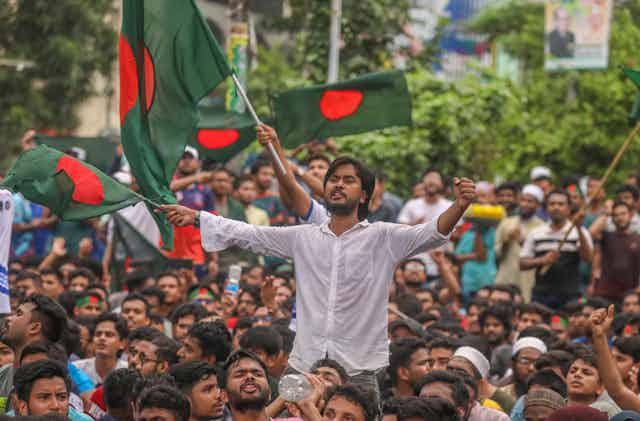Special Correspondent
Published:2025-06-11 05:38:57 BdST
Bangladesh in crisisJobless youth and failing governance in BD
In July 2024, Bangladesh’s youth erupted in a nationwide movement demanding employment and economic justice. What began as a call for dignity and inclusion soon became a sweeping uprising—fueled by frustration and the collective despair of a generation. Their demand was straightforward: jobs for the jobless. Their expectation: a government that would listen.
What followed instead was silence, confusion, and a deepening national crisis.
False Hopes, Fading Promises
When Dr Muhammad Yunus was appointed head of the interim government, his international reputation offered a glimmer of hope to parts of the elite and foreign backers. Many heralded his leadership as a return to “ethical governance.” On the ground, however, the reality could not have been more different.
Barely a year into his leadership, Bangladesh is facing its highest levels of unemployment in history. The economy is in freefall and public trust is eroding rapidly.
Once the lifeblood of the national economy, Bangladesh’s manufacturing sector—particularly the garment industry—is unraveling. Factories are shutting down at a dangerous pace. Export orders have plummeted amid diplomatic isolation, internal mismanagement, and the absence of coherent policy direction.
Industrialists speak of being harassed, confused by shifting regulations and left in the dark about government priorities. Investor confidence is evaporating. The economic gains of the past decade are being rapidly undone.
The same youth who led last year’s protests now face even darker prospects. University graduates wander the streets, degrees in hand, with no hope of employment. Former garment workers are being pushed into informal or illicit economies, including trafficking and forced labor.
With joblessness surging and no safety net in place, a generation is slipping into despair.
As economic despair deepens, crime is rising across the country. Dhaka, Chattogram, and other urban centers are seeing spikes in theft, extortion, gang violence, and civil unrest. Police forces—stretched thin, under-resourced, and often politicized—are increasingly ineffective. In rural areas, mass migration has left villages hollowed out.
Law and order is visibly unraveling.
The interim administration, led by Dr Yunus, now stands widely discredited. Far from being a catalyst for reform, it has become synonymous with indecision and dysfunction. Critics argue that the government lacks both legitimacy and vision.
Rather than addressing core economic concerns or rebuilding public confidence, the Yunus administration has leaned heavily on bureaucratic inertia, opaque governance, and international appeasement.
A recent documentary, “Bangladesh Facing Collapse – A Country Betrayed” (watch here), captures the gravity of the crisis through powerful testimonies and raw footage. It paints a picture of a country staring down a socioeconomic abyss.
Bangladesh is approaching a dangerous crossroads: a worsening economic crisis, an interim government losing its mandate, a disenfranchised population, and growing international indifference. If this trajectory continues unchecked, mass unrest may be inevitable.
The caretaker model, once seen as a stabilizing solution, now appears more like a straitjacket—hindering responsive governance and suppressing democratic momentum.
The streets that once echoed with hopeful chants are now quiet with fear. Factories that once buzzed with life now stand still. The promise of a rising Bangladesh is dimming fast.
Unless urgent, homegrown corrective action is taken—led by accountable national leadership rather than remote-controlled technocrats—Bangladesh risks plunging into an unprecedented national disaster.
Unauthorized use or reproduction of The Finance Today content for commercial purposes is strictly prohibited.


